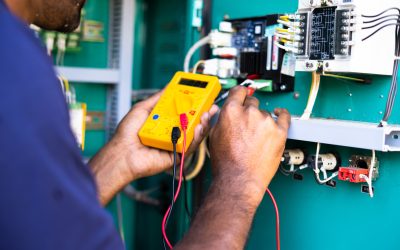In today’s rapidly evolving business landscape, maintaining consistent and reliable power is crucial for organizations across the United States. Power disruptions can lead to operational downtime, data loss, and significant financial setbacks. As American businesses increasingly depend on digital infrastructure and automated processes, the need for robust power protection systems has never been more pronounced. For those searching for advanced solutions, the phrase “Schneider Electric Ups” often appears as a top result—reflecting the growing interest in comprehensive power management strategies that safeguard critical operations.
The Importance of Reliable Power for American Businesses
Unplanned power outages and voltage fluctuations are not just inconveniences; they can disrupt manufacturing lines, compromise sensitive data, and halt essential services. American businesses, regardless of size or industry, face mounting challenges in ensuring their operations remain uninterrupted. Reliable power is the backbone of productivity, customer satisfaction, and business continuity. As companies expand their reliance on technology, the demand for dependable and scalable uninterruptible power supply (UPS) systems continues to rise.
Key Features of Advanced UPS Solutions
Modern UPS solutions are designed to do much more than simply provide backup power during outages. They offer a suite of features that enhance power reliability and operational efficiency:
• Real-Time Monitoring: Advanced UPS systems allow businesses to monitor power quality and system status continuously, ensuring proactive maintenance and early detection of potential issues.
• Scalability: As businesses grow, their power protection needs evolve. Scalable UPS solutions make it easy to expand capacity without significant overhauls.
• Energy Efficiency: High-efficiency models help reduce energy consumption and lower operating costs, which is especially important in a competitive business environment.
• Remote Management: With cloud-based controls and remote diagnostics, IT teams can manage power systems from anywhere, ensuring rapid response to any disruptions.
• Integration with Existing Infrastructure: Modern UPS solutions are compatible with a wide range of environments, from small offices to large data centers, making them adaptable to unique business needs.
How UPS Solutions Enhance Power Reliability
UPS systems play a critical role in bridging the gap between power loss and generator startup, or until the main supply is restored. By instantly providing backup power, they prevent data corruption, hardware damage, and costly downtime. Furthermore, advanced UPS solutions can regulate voltage, filter out power surges, and protect sensitive equipment from electrical noise. This comprehensive approach helps American businesses maintain uptime, protect assets, and meet regulatory requirements for operational continuity.
Actionable Steps for Businesses
To maximize the benefits of UPS solutions, businesses can take several proactive steps:
1. Assess Power Needs: Conduct a thorough evaluation of critical systems and identify areas vulnerable to power disruptions.
2. Choose the Right UPS Solution: Select a system that matches current and future power demands, with an emphasis on scalability and energy efficiency.
3. Implement Regular Maintenance: Schedule routine inspections and testing to ensure optimal performance.
4. Train Staff: Educate employees on proper UPS usage and emergency procedures to minimize response times during outages.
Powering the Future of American Business
Reliable power is essential to the success and resilience of American businesses. Advanced UPS solutions not only provide immediate backup during outages but also deliver long-term value through energy efficiency, scalability, and remote management capabilities. By investing in robust power protection systems, organizations can protect their operations from unexpected disruptions and maintain a competitive edge in the digital era.


